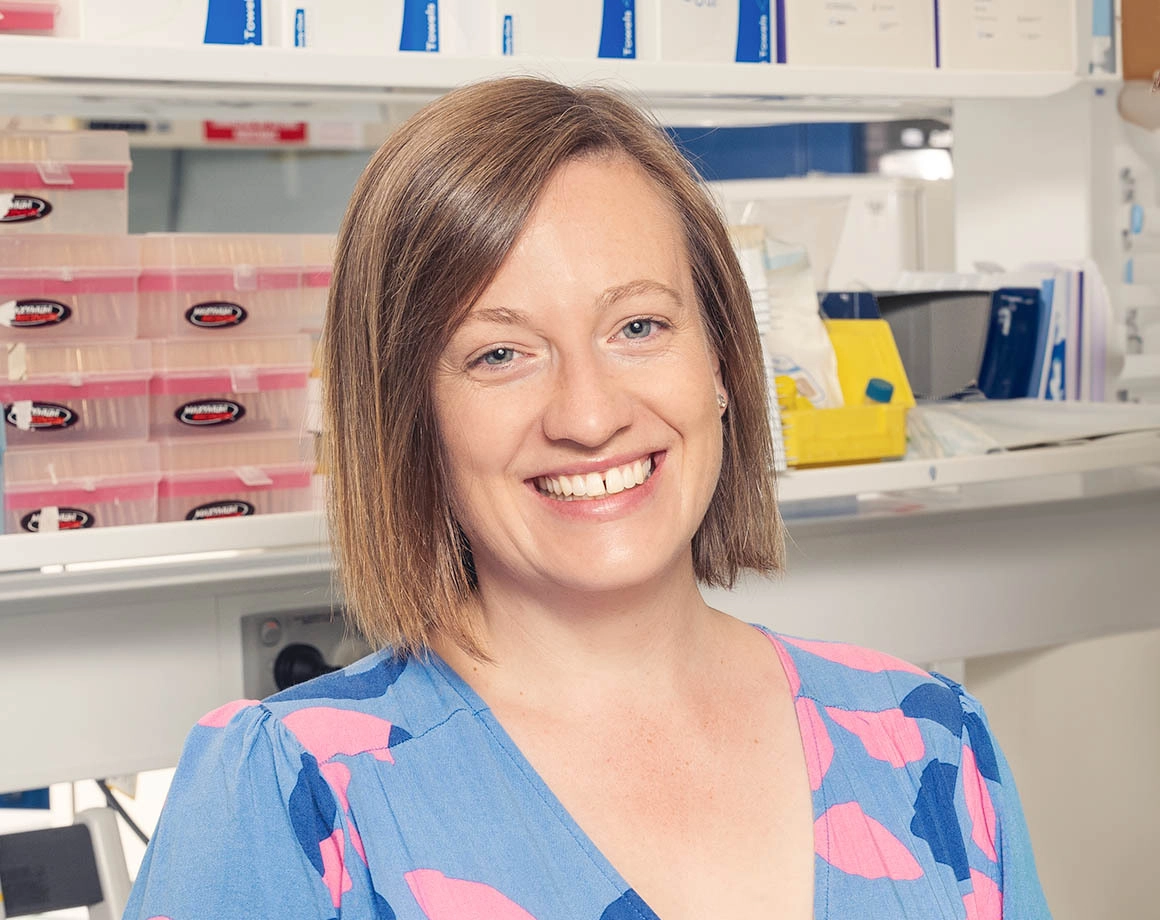




Tackling rising gestational diabetes rates

Dr Tanja Jankovic-Karasoulos has received a Flinders Foundation Health Seed Grant to build on her team’s earlier discovery of the connection between folic acid and placental hormones which regulate maternal glucose tolerance in pregnancy.
Alarmingly, the incidence of gestational diabetes in Australia has more than tripled over the past decade from 5.6 per cent in 2011 to 19.3 per cent in 2022.
“The dogma surrounding gestational diabetes has focused primarily on maternal obesity, as well as age and ethnicity, yet the rise is seen across all groups…increasing evidence points to a role for folic acid in insulin resistance and gestational diabetes,” Dr Jankovic-Karasoulos explains.
In addition to mandated addition of folic acid to breadmaking flour since 2009, folic acid has been gradually added to many foods and drinks resulting in increased folic acid intake that far exceeds the recommended total daily intake.
“This work will provide critical evidence on the role of folic acid and support applications for larger funding to tackle the problem of rising gestational diabetes in Australia to alleviate the imminent and long‐term health impacts in 500,000 women and babies predicted to be affected over the next decade,” Dr Jankovic-Karasoulos says.
Long-term effects of gestational diabetes exposure can include childhood obesity, as well as increased risk of developing Type 2 diabetes and cardiovascular disease for both mother and baby.
“Identifying women at risk of gestational diabetes early in pregnancy prior to the rise in glucose, would protect the fetus from adverse effects of weeks of hyperglycaemia and provide a foundation for a healthy start to life for children,” Dr Jankovic-Karasoulos explains.
“We hope that this work and future studies will help improve pregnancy health guidelines on folic acid supplementation during pregnancy in the era of widespread folic acid food fortification.”
Mother-of-two Kelly Roberts, who was diagnosed with gestational diabetes during routine glucose tolerance testing in her second pregnancy with daughter Emma, now six, says she’s supportive of research into gestational diabetes to help grow understanding of the condition and limit health effects on mother and child.
“It was quite a shock, and I was a bit scared as I didn't have a sense that I would be one of the people diagnosed with it,
I was mindful of the impact it might have on my daughter’s long-term health.
Even now I'm more conscious of the choices I make and receive regular reminders for testing as I know I’m now much more likely to develop diabetes over time.”
– Mother-of-two Kelly Roberts

Project title: Decoding Folic Acid Impact on Gestational Diabetes Risk in Australia
This project is one of 31 exciting new health and medical research projects to receive funding in Flinders Foundation’s annual health seed grant thanks to donations from generous individuals and funds raised by supporters and organisation.
Everything starts with an idea
Every donation is a promise that we’re in this together, elevating care, fostering hope and advancing discoveries.
Support research and care. Donate today
More stories about
Keep up to date
Subscribe to our newsletter to receive information on our latest news and events
Flinders Foundation acknowledges the Kaurna people as the traditional custodians of the land on which the Flinders precinct was established. We acknowledge the Kaurna people’s deep and ongoing connection to land, waters and community, and pay our respect to their Elders, past and present.


















